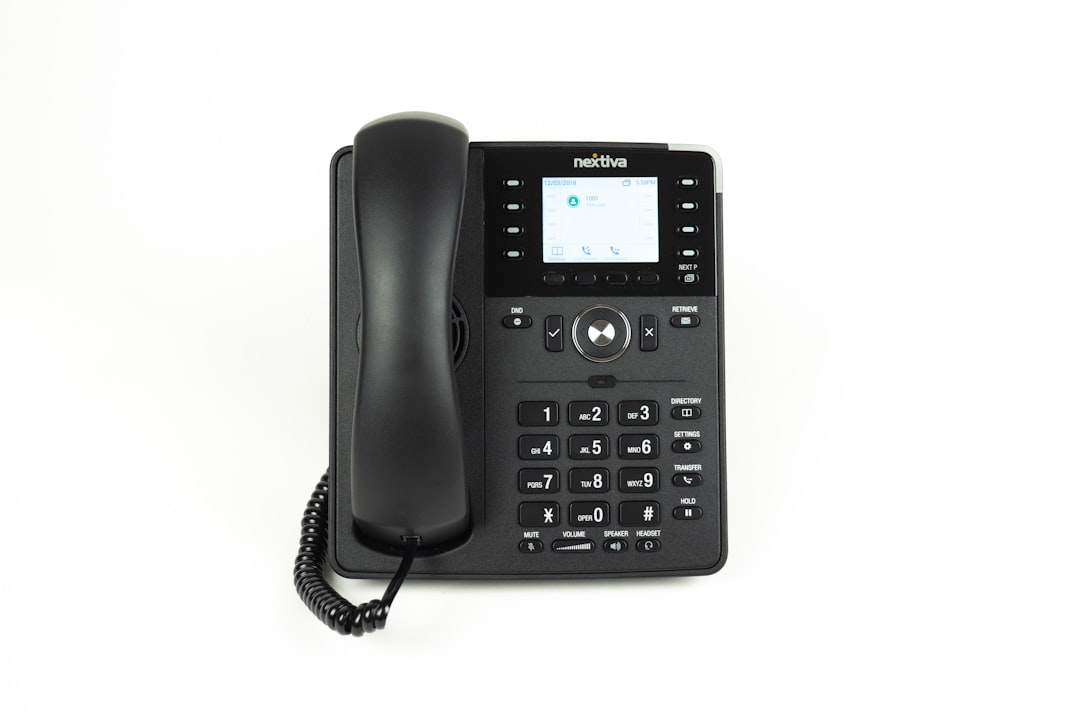Nonprofits in Pennsylvania engaging in telemarketing must comply with the Telephone Consumer Protection Act (TCPA) to avoid significant fines and reputational damage. Key requirements include obtaining prior express consent for automated calls, providing clear opt-out language, and adhering to timing restrictions. Nonprofits should consult a TCPA Lawyer Pennsylvania, TCPA attorney Pennsylvania, or TCPA law firm Pennsylvania to ensure compliance, navigate complex regulations, and protect their donor relationships during telemarketing campaigns.
Nonprofits in Pennsylvania engaging in telemarketing activities must navigate complex legal considerations, particularly under the Telephone Consumer Protection Act (TCPA). This comprehensive guide explores the TCPA’s relevance to Pennsylvania nonprofits, when telemarketing crosses legal boundaries, and crucial obligations these organizations face. We delve into practical compliance strategies, drawing from case studies, and offer best practices for nonprofit telemarketing success while adhering to strict legal guidelines. Find expert advice from top PA TCPA lawyers and attorneys at renowned law firms to ensure your campaigns remain compliant and effective.
Understanding the TCPA and its Relevance to Nonprofits in PA

Nonprofits in Pennsylvania engaging in telemarketing activities must be aware of and compliant with the Telephone Consumer Protection Act (TCPA). This federal law, enforced by the Federal Trade Commission (FTC), restricts how businesses, including nonprofits, can contact consumers by phone. Violations can result in significant fines and legal repercussions for nonprofits, especially when dealing with sensitive donor information.
The TCPA’s relevance to Pennsylvania nonprofits stems from its broad application to any organization making telemarketing calls, regardless of size or purpose. Key provisions include restrictions on automated calls without prior consent, requirements for clear and concise opt-out language, and limitations on the timing of calls. A TCPA lawyer in Pennsylvania or a reputable TCPA law firm can help nonprofits navigate these regulations, ensuring compliance to protect both their operations and donor relationships.
When Does Telemarketing Become a Legal Issue for Non-Profit Organizations?

In Pennsylvania, telemarketing activities by nonprofit organizations are subject to regulation under the Telephone Consumer Protection Act (TCPA) and other state laws. Nonprofits engaging in phone solicitation or marketing campaigns must adhere to strict guidelines to avoid legal issues. While nonprofits may enjoy certain exemptions from TCPA regulations, these exemptions have limitations. For instance, charitable solicitations made via automated dialing systems or prerecorded messages generally require prior express consent from the recipient, unless the nonprofit has an established relationship with the caller.
Nonprofit organizations risk facing legal repercussions if they violate TCPA guidelines, which can lead to substantial fines and damage to their reputation. A TCPA lawyer in Pennsylvania can help nonprofits navigate these complex regulations, ensuring compliance and minimizing potential risks. Engaging the services of a qualified TCPA attorney or law firm in PA is crucial for organizations seeking to conduct telemarketing activities while adhering to legal requirements and protecting their interests.
Legal Obligations of Nonprofits Under the TCPA

Nonprofit organizations in Pennsylvania engaging in telemarketing activities must adhere to strict legal obligations as outlined by the Telephone Consumer Protection Act (TCPA). This federal law, enforced by the Federal Communications Commission (FCC), aims to protect consumers from intrusive telemarketing practices. For nonprofits, understanding and complying with these regulations is crucial to avoid significant penalties.
One of the key responsibilities under the TCPA is obtaining explicit consent before making automated telephone calls or sending text messages for marketing purposes. Nonprofits must also ensure that their telemarketing efforts do not cause harm or convenience disruptions to recipients. This includes providing a clear and simple opt-out mechanism, allowing individuals to stop future communications easily. A qualified TCPA lawyer in Pennsylvania can guide nonprofits through these complex regulations, ensuring they remain compliant and avoid legal repercussions for TCPA violations.
Compliance Strategies for Nonprofit Telemarketing Campaigns in Pennsylvania

When planning nonprofit telemarketing campaigns in Pennsylvania, it’s crucial to align with the Telephone Consumer Protection Act (TCPA) and state regulations to avoid costly penalties and legal repercussions. A comprehensive compliance strategy is essential, starting with obtaining proper consent from callers, ensuring clear disclosures during outreach, and implementing robust do-not-call practices. Nonprofits should educate their staff about TCPA rules, especially regarding automated calls, prerecorded messages, and call timing restrictions.
Engaging a qualified TCPA lawyer Pennsylvania or an experienced TCPA attorney Pennsylvania can provide specialized guidance tailored to your organization’s needs. These legal experts can assist in crafting consent forms, training volunteers or staff, and establishing procedures to track and manage opt-out requests effectively. By adhering to the TCPA regulations and seeking professional support when necessary, nonprofits can conduct successful fundraising campaigns while maintaining compliance with Pennsylvania laws.
Navigating Legal Challenges: Case Studies and Best Practices

Navigating Legal Challenges: Case Studies and Best Practices
Nonprofits engaging in telemarketing activities in Pennsylvania face a complex legal landscape, primarily governed by the Telephone Consumer Protection Act (TCPA). TCPA lawyers Pennsylvania and their associates play a crucial role in ensuring compliance with this stringent federal law. Case studies from organizations that have successfully navigated these challenges offer valuable insights. One key practice is obtaining explicit consent from callers, documented through clear opt-out mechanisms. This not only helps avoid costly violations but also enhances donor relationships by demonstrating respect for individual choices.
Moreover, staying updated on state-specific regulations and court interpretations is essential. Engaging a reputable TCPA law firm Pennsylvania can provide the necessary expertise to interpret these nuances, ensuring nonprofits remain compliant without unduly burdening their resources. By adopting best practices and leveraging legal counsel, nonprofits can effectively harness telemarketing as a tool for fundraising while avoiding potential pitfalls, thereby maximizing their impact in the state.






